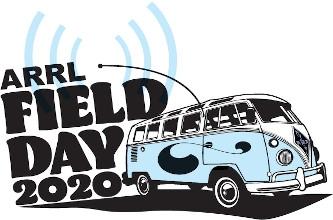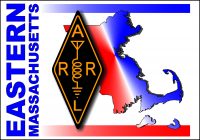 Rick Palm, K1CE, writes in the ARRL ARES Letter, May 20, 2020:
Rick Palm, K1CE, writes in the ARRL ARES Letter, May 20, 2020:
ARRL Field Day is my favorite operating event of the year. For most radio clubs and large groups, it’s going to be a different experience this year in light of the COVID-19 environment. With CDC protocols in place, many will not gather in their usual Field Day locations. ARRL offered some tips and suggestions to help you plan this year’s operation — ARRL Suggests Taking a Creative Approach to Field Day 2020. A few of them applied to my own recent operating experiences and thought I would share as possible inspiration.
My personal, longtime Field Day experience revolves around my recurrent entry class: 1E – home station on emergency power, yes, the “couch potato” class. It’s easy to look down on us E class operators but every year I learn something new about my station and operation, usually dealing with 12V power management and solar panel efficiency, etc. “Remember, Field Day is a non-adjudicated operating event and not a ‘full speed ahead’ contest,” says ARRL.
The League also suggests not forgetting about 6 meters: FD is not an HF-only event. Summer propagation on the “Magic Band” can be interesting and sometimes thrilling. This past year, I have used my 40-meter dipole to work local stations on 6 meters. I just ordered a three element 6 meter Yagi. I’m looking forward to trying it for FD (and the preceding June VHF Contest) for openings.
Recently I have had a blast discovering FT8 and the underworld (under the noise-level world, that is) of weak signal work. A suggestion from colleague Mike Corey, KI1U, and the WSJT suite of weak signal software opened this door to excitement for me. I’m not sure how to configure it for Field Day yet, but that will give me something fun to learn and apply before next month’s event. The software reportedly does support the ARRL Field Day exchange.
It strikes me that derivatives of FT8 will render high value modes for emergency/disaster response communications when conditions are less than optimal, its essence. See, for example, JS8Call. JS8Call is a digital mode built on the popular FT8 protocol; however, it instead offers real-time keyboard-to-keyboard messaging as well as store-and-forward capabilities and other similar features.
Remember: In Field Day, “a premium is placed on developing skills to meet the challenges of emergency preparedness as well as to acquaint the general public with the capabilities of Amateur Radio.” – ARRL Field Day Rules
“We don’t rise to the level of our expectations. We fall to the level of our training.” – Archilochus

